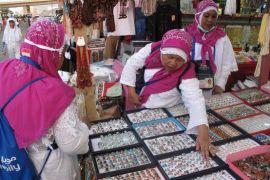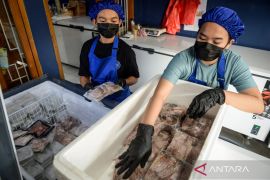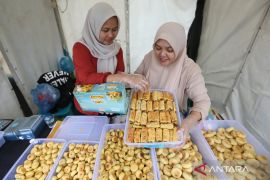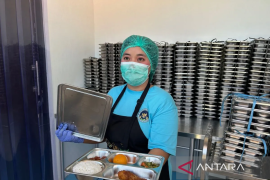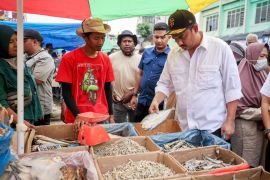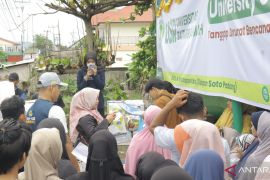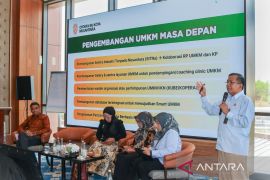The role of MSMEs was evident during the 1998 monetary crisis, which weakened Indonesia's economy. During that period, they served as a fortress for the national economy, when half of the major entrepreneurs struggled to deal with the crisis.
This was also seen during the COVID-19 pandemic, which began at the start of 2020, when MSMEs once again contributed to national economic recovery.
According to an economist from Lambung Mangkurat University (ULM), Hidayatullah Muttaqin, the presence of additional MSMEs in the production and services sector can help generate an economic multiplier effect.
The more MSMEs in production and services there are, the bigger their impact on the extent of the multiplier effect.
Industrial activities at the scale of MSMEs can encourage the revival of activities related to the supply chain of raw materials and other supporting materials, which affect product distribution and trade.
When it comes to service businesses, the economic multiplier effect broadly affects other sectors, including production and trade.
Conversely, when trade dominates, beyond providing smaller economic impacts, it can also boost imports, specifically of consumption goods.
Beyond increasing MSMEs' number in production and services, raising MSMEs' class can also have a major impact on the economic benefit that the people enjoy, in addition to raising the income of the entrepreneurs themselves.
Despite this, of the total MSMEs, whose number has currently crossed 64 million, only 17.45 percent have shown the spirit of entrepreneurship.
This relatively low figure has left MSMEs unable to play their role optimally as compared to major enterprises.
This is despite the fact that MSMEs serve as job creators by absorbing 97 percent of the workforce. This means that the quality of Indonesian MSMEs should be improved.
Moreover, Cooperatives and Small and Medium Enterprises (SMEs) Minister Teten Masduki informed that the ratio of entrepreneurs to the Indonesian population is currently at three percent.
In a developed country, the percentage of entrepreneurs should at least be four percent.
To achieve this end, the government has started to intensify support for new entrepreneurs that are emerging in various parts of the country.
One of the efforts that the government has undertaken to provide support to MSMEs to maintain product quality, manage their business, and open new markets at the global level has been the incubation program.
MSME incubation
The incubation program is being realized through the formation of an ecosystem that encourages MSMEs to become more competitive through productive funding and assistance.
The incubation program can encourage the birth of new entrepreneurs in Indonesia. This is because the number of businesspersons in the country is still lagging compared to neighboring countries.
Business incubation differs from other relatively short trainings that offer no assistance.
Business incubation tends to guarantee success since it provides intensive assistance over a relatively long duration. It can take one month, even more than a year.
In general, the incubation program begins with tenant selection to determine candidates' production capacity, marketing strategy, and the commitment of entrepreneurs to developing their business.
Participants who pass the selection are provided training materials, which cover different aspects of business, such as business planning, legality, production, marketing, and finance.
The participants are then given assistance so that they can truly understand and apply the training materials given to them. The best participants receive a number of facilities and rewards that they can use to grow their business.
The Ministry of Cooperatives and SMEs, as the leading sector in incubator development, has issued Government Regulation No. 7 of 2021 on cooperatives and MSMEs’ convenience, protection, and empowerment.
The regulation mandates regional governments at the level of provinces and districts or cities to immediately form incubator institutions.
The ministry has demonstrated its commitment to forming incubator institutions through cooperation with 32 incubator institutions, divided into two activities.
At least 10 incubator institutions have synergized to incubate 100 startups while 22 other incubators have synergized to develop their incubator institution.
One of the institutions involved in the incubator program is Bank Syariah Indonesia (BSI), which, in January 2023, unveiled the 2023 BSI Entrepreneur Talent program.
The program's winners get access to several facilities such as financing, market, and information.
The 2023 BSI Entrepreneur Talent is aiming to involve 7,500 participants from more than 20 major cities in Indonesia and several Islamic boarding schools or pesantrens, which have become the new category of beneficiaries of this year's program.
Through the selection process, the program will choose the best of the 7,500 participants, and they will be assisted through training, incubation, or capital provision.
The ministry has recorded that last year, BSI mobilized pesantrens to develop synergy, and this year, it is prioritizing pesantren students as part of the BSI Entrepreneur Talent Program.
"I believe that programs such as BSI Entrepreneur Talent can help expedite the creation of MSMEs and jobs, specifically in the sharia economy ecosystem," Masduki explained.
Incubation efforts are also being undertaken by the private sector, such as business training institution Ucoach Indonesia through its 2023 Business Hack.
Events such as Business Hack, which help entrepreneurs to scale up, serve as a platform for MSMEs to join the business ecosystem and raise their class.
These events also allow MSMEs to compete in the domestic and global markets.
MSMEs that participate in the incubation program not only receive materials and assistance, but also several conveniences from the government.
The ministry is supporting the incubation program, which has been in progress from 2020 until 2023.
The incubation program has become a part of the ecosystem that supports the digital transformation of MSMEs in Indonesia to maximize national digital economy potential.
Related news: New capital's development benefiting local enterprises: Susantono
Related news: MSME, industry sectors as economic growth sources in 2023: Minister
Related news: Banking industry should not overlook small businesses: Jokowi
Translator: Kuntum K R, Fadhli Ruhman
Editor: Azis Kurmala
Copyright © ANTARA 2023


